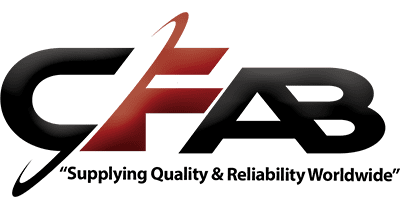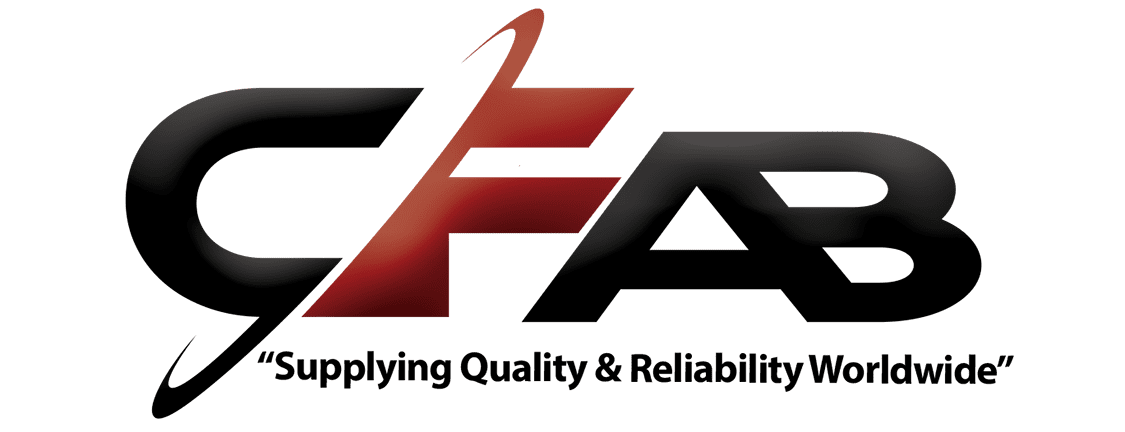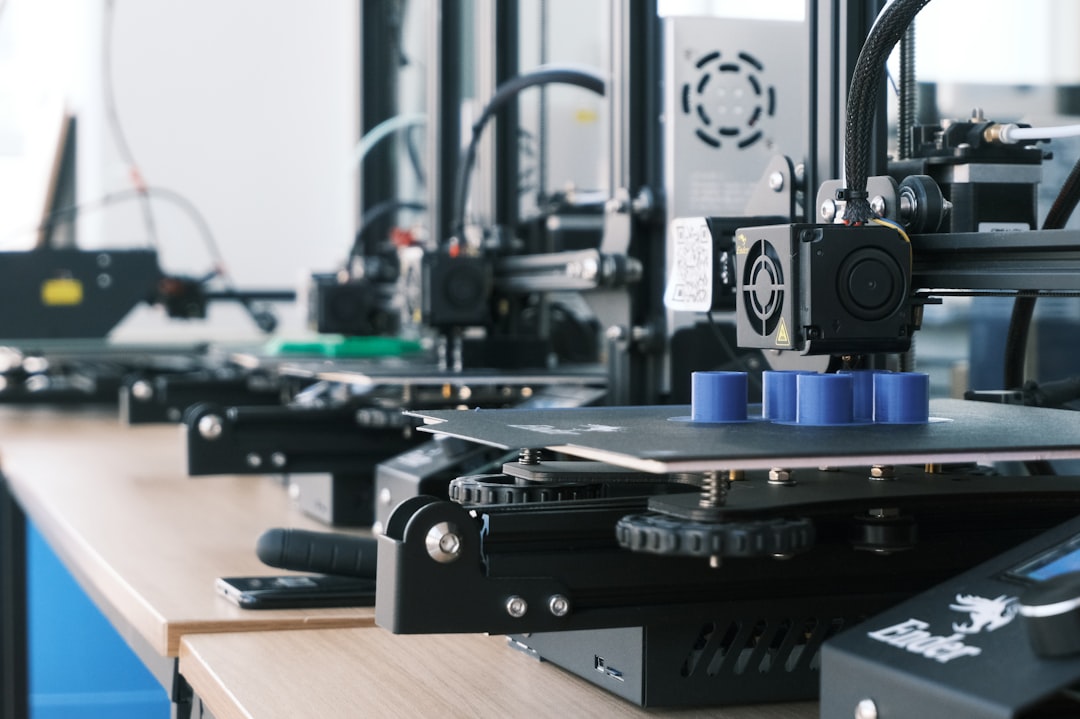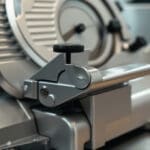Machinery parts manufacturer is crucial when considering the growth and operational efficiency of an industrial business. Reliable components ensure not only the smooth running of various mechanical systems but also enhance overall production quality and safety. In the rapidly evolving industrial sector, the role of a machinery parts manufacturer cannot be overstated, since they provide essential components that power, automate, and optimize countless processes.
Understanding the machinery industry is integral for anyone stepping into the field or looking to refine their manufacturing process. The foundational skills such as precision engineering, innovative design capabilities, and stringent quality control are not just beneficial—they’re essential. These skills directly affect the functionality and dependability of the parts produced, which in turn influences the productivity and efficiency of entire industries.
Manufacturers must not only respond to immediate needs but also anticipate future industry requirements and technological advancements. This foresight involves possessing a thorough understanding of market trends, client needs, and the technological landscape.

We’ll explore the key skills that every successful machinery parts manufacturer needs to master, from technical expertise all the way to customer service excellence. These will paint a clearer picture of why these skills are not just beneficial, but crucial for thriving in this competitive industry.
Technical Expertise and Precision
Technical expertise and precision are foundational to the success of any machinery parts manufacturer. This section delves into three critical technical skills: CNC machining, metal fabrication, and 3D printing.
CNC Machining
CNC (Computer Numerical Control) machining stands out as a core skill in machinery parts manufacturing. It involves using computer-controlled machine tools to shape metal and other materials with high precision. This method is crucial for creating components that require exact specifications and complex geometries.
In the machinery parts manufacturing sector, the use of CNC machining is pivotal for producing high-quality components like crane wheels and gearboxes. This technology’s precision is crucial because it ensures that parts meet strict industry standards. Such accuracy is especially important in industries such as aerospace and automotive, where safety is a top priority.
Metal Fabrication
Metal fabrication involves cutting, bending, and assembling metal structures from various raw materials. A skilled machinery parts manufacturer uses advanced techniques like laser cutting, press brake forming, and welding. These processes are essential for creating durable and robust parts used in heavy machinery and industrial applications.
DCI, Inc. is an excellent example of how metal fabrication plays a pivotal role in manufacturing storage and processing vessels for industries such as pharmaceuticals and food and beverage. Their ability to manipulate stainless steel into complex shapes and sizes is a testament to their fabrication expertise.
3D Printing
3D printing, or additive manufacturing, is revolutionizing the machinery parts manufacturing industry. It allows manufacturers to create parts from digital models by layering materials. This technology is not only used for prototyping but is increasingly being employed for final product manufacturing due to its ability to produce lightweight, strong, and complex components.
For example, in the realm of food processing and packaging solutions, Beth-El Machinery Ltd. utilizes 3D printing to innovate and streamline their production processes. By adopting this technology, they can quickly turn concepts into functional prototypes, significantly reducing development time and cost.
Precision in all these technologies is not just about adhering to technical specifications; it also reflects in the quality and reliability of the final product. Mastery in CNC machining, metal fabrication, and 3D printing ensures that a manufacturer can produce parts that are not only fit for purpose but also superior in performance and longevity.
Moving forward, as we delve deeper into the qualities that define top-tier manufacturers, we’ll explore how maintaining stringent quality control and assurance protocols plays a crucial role in the industry. This ensures that every part not only meets but often exceeds the rigorous demands of modern industrial applications.
Innovation and Design Capability
When it comes to being a successful machinery parts manufacturer, the ability to innovate and design effectively is crucial. This section dives into the essential skills needed in prototyping, using CAD software, and creating custom solutions.
Prototyping
Prototyping is a critical step in the manufacturing process. It allows manufacturers to create a preliminary model of a part to evaluate its feasibility, function, and appearance before full-scale production. This process is vital because it helps identify potential issues early on, saving time and resources. For instance, manufacturers can use various materials and techniques, such as CNC machining or 3D printing, to develop prototypes that closely mimic the final product. This approach ensures that the design specifications are met with precision.
CAD Software
Computer-Aided Design (CAD) software is an indispensable tool for any modern machinery parts manufacturer. CAD software aids in creating detailed 3D models of parts, which are essential for visualizing and testing the design before manufacturing begins. This software not only streamlines the design process but also enhances accuracy and efficiency. By using CAD, manufacturers can make quick adjustments to designs and simulate how the parts will work in real-world applications.
Custom Solutions
Every industry has unique needs, and sometimes, off-the-shelf parts just don’t cut it. That’s where custom solutions come into play. A top-tier machinery parts manufacturer must have the capability to design and manufacture custom parts tailored to specific client requirements. This involves understanding the client’s needs, the operational environment of the part, and the stresses it will endure. Custom solutions are not just about meeting specifications; they’re about adding value to the client’s operations, ensuring compatibility, enhanced performance, and longevity of the parts.
In conclusion, innovation and design capabilities are fundamental for manufacturers aiming to lead in the machinery parts industry. By mastering prototyping, effectively utilizing CAD software, and providing custom solutions, manufacturers can ensure they meet diverse client demands while pushing the boundaries of what’s possible in machinery parts manufacturing.
As we continue to explore the essential skills necessary for success in this field, our next focus will be on the stringent measures of quality control and assurance that further distinguish superior manufacturers in this competitive landscape.
Quality Control and Assurance
In machinery parts manufacturing, maintaining the highest standards of quality is not just beneficial; it’s essential. Here, we delve into how manufacturers can achieve and uphold these standards through ISO certifications, NADCAP accreditation, and AQL inspections.
ISO Certifications
ISO certifications, such as ISO 9001:2015, play a critical role in establishing a framework for quality management and continuous improvement. This certification ensures that a machinery parts manufacturer adheres to globally recognized standards for quality, which covers various aspects of production, from material selection to final inspection. For instance, companies like Davidson Fabricating Inc. hold ISO 9001:2015 certification, a testament to their commitment to quality and customer satisfaction.
NADCAP Accreditation
For manufacturers involved in more specialized sectors like aerospace, obtaining NADCAP accreditation is crucial. This accreditation is not just a badge of honor; it’s a necessity that dictates a firm’s ability to handle high-precision parts under stringent regulatory standards. It covers a wide range of processes including welding and non-destructive testing, ensuring every part meets the exacting requirements of industries where safety and reliability are paramount.
AQL Inspections
Acceptable Quality Limit (AQL) inspections are a cornerstone of quality control in parts manufacturing. These inspections help manufacturers determine the maximum number of defective items considered acceptable during a random sampling of goods. A robust AQL protocol ensures that only the highest quality parts move forward in the supply chain, minimizing the risk of failures or rejections, which can be costly and damage a manufacturer’s reputation.
By rigorously adhering to these quality control and assurance measures, manufacturers not only meet the high standards expected by their clients but also position themselves as leaders in the competitive field of machinery parts manufacturing. The integration of these practices demonstrates a manufacturer’s dedication to excellence and reliability, key traits that are indispensable in this industry.
The next crucial aspect to explore is the efficient management of supply chains and inventory, which is pivotal in meeting customer demands promptly and effectively.
Supply Chain and Inventory Management
Effective management of the supply chain and inventory is crucial for any machinery parts manufacturer. This involves strategic sourcing of materials, streamlined logistics, and precise inventory control. Let’s dive into how these elements play a vital role in ensuring the success and reliability of a manufacturer.
Sourcing
Finding the right suppliers is more than just about cost. It’s about quality and reliability. Successful manufacturers establish long-term relationships with suppliers who provide high-quality materials consistently. For example, as noted in the industrial machinery parts section, companies like Mechanical Power have built strong networks with top manufacturers to source parts efficiently. This not only saves time but also ensures that the materials used in manufacturing are of the highest standard.
Logistics
Efficient logistics are key to keeping production lines moving and meeting delivery deadlines. Good logistics management involves:
- Timely transportation of materials from suppliers to manufacturing facilities.
- Effective distribution systems to ensure that finished products reach customers promptly.
- Adaptability to handle unexpected challenges like shipping delays or route changes.
For instance, companies often use advanced software to track shipments in real time, ensuring they can react quickly to any issues that might arise.
Inventory Control
Proper inventory management is essential to balance between having enough stock to meet customer orders and not overstocking, which ties up capital. Techniques used include:
- Just-in-Time (JIT) inventory systems, which reduce warehouse costs and minimize surplus by receiving goods only as they are needed in the production process.
- Automated inventory systems that use data analytics to predict stock needs and adjust orders accordingly.
For example, sophisticated ERP (Enterprise Resource Planning) systems can integrate all aspects of inventory management, providing a comprehensive view of stock levels, supplier schedules, and customer orders.
By mastering these aspects, a machinery parts manufacturer can ensure they not only meet but exceed customer expectations in delivering high-quality products efficiently. This not only strengthens customer relationships but also enhances the manufacturer’s reputation in a competitive market. As we look ahead, understanding and adapting to market needs and trends will further define the success of manufacturers in this industry.
Customer Relationship and Service Excellence
In machinery parts manufacturing, the ability to establish strong customer relationships and deliver service excellence is as critical as the technical aspects of manufacturing itself. Here’s how manufacturers can excel in these areas:
Support Programs
Support programs are essential for maintaining a positive customer experience. These programs often include technical support, maintenance services, and troubleshooting, which are crucial for customers who rely on machinery parts for their operations. For example, offering 24/7 customer service can significantly enhance client satisfaction and loyalty.
Customized Solutions
Every client’s needs are unique, and providing customized solutions can set a manufacturer apart from the competition. This involves working closely with clients to understand their specific requirements and challenges. The use of CAD software and prototyping, as discussed earlier, plays a significant role here, allowing manufacturers to create precise and tailored parts that meet exact client specifications.
On-time Delivery
Reliability in delivery times is a cornerstone of customer service excellence. On-time delivery ensures that clients can maintain their schedule without disruptions, which is critical in industries where every minute of downtime can result in significant financial losses. Implementing efficient logistics and inventory management systems, as mentioned in the previous sections, helps manufacturers keep their promises regarding delivery timelines.
By focusing on these key areas, machinery parts manufacturers can build robust relationships with their clients, characterized by trust and mutual respect. This approach not only secures repeat business but also enhances the manufacturer’s reputation, opening doors to new opportunities and markets. As we continue to explore the intricacies of this field, the next section will delve into understanding market needs and trends, which is pivotal for staying ahead in this dynamic industry.
Understanding Market Needs and Trends
In the rapidly evolving field of machinery parts manufacturing, staying attuned to market needs and trends is not just beneficial; it’s essential for survival and growth. This section will explore the industrial applications, consumer demands, and technological advancements that are shaping this industry.
Industrial Applications
The scope of industrial applications for machinery parts is vast and varied. From aerospace to automotive, and from construction to energy, each sector has specific requirements and challenges. For example, the aerospace industry demands parts that withstand extreme conditions and comply with stringent safety standards. Similarly, the automotive industry continually seeks innovations in lightweight and durable components to enhance fuel efficiency and performance.
Understanding these applications helps manufacturers like CFAB Global tailor their production strategies to meet the precise needs of each industry segment, ensuring relevance and competitiveness.
Consumer Demands
Consumer expectations in the machinery parts sector are intensifying. End-users look for not only high-quality and reliable components but also expect cost-efficiency and rapid delivery. For instance, in sectors like food processing, companies such as Beth-El Machinery Ltd. cater to these demands by providing specialized equipment that guarantees safety and efficiency.
Adapting to these demands means that manufacturers must invest in continuous improvement programs and lean manufacturing techniques, ensuring they can deliver exceptional quality swiftly and at a competitive price.
Technological Advancements
Technology drives change in every industry, and machinery parts manufacturing is no exception. Advancements such as 3D printing, AI-driven automation, and advanced materials are revolutionizing how parts are designed, produced, and tested.
3D printing, for instance, allows for the rapid prototyping of parts, enabling faster iteration and innovation. AI and machine learning are being used to predict equipment failures before they occur, significantly reducing downtime and maintenance costs. Moreover, new materials such as advanced composites and superalloys are creating parts that are lighter, stronger, and more durable than ever before.
Manufacturers that stay ahead of these technological trends can develop new solutions that meet evolving industry standards and consumer expectations, positioning themselves as leaders in the market.
By keeping a pulse on these critical areas, machinery parts manufacturers can anticipate changes and adapt their strategies accordingly. This proactive approach is crucial for aligning with current market dynamics and setting the stage for future growth. The ability to integrate these insights with core manufacturing processes will determine how manufacturers like CFAB Global not only survive but thrive in an increasingly competitive landscape.
Frequently Asked Questions about Machinery Parts Manufacturing
What are the key components of industrial machinery?
Key components of industrial machinery include bearings, fasteners, and hydraulic systems. These components are essential for the smooth operation of machinery and must meet strict standards for quality and performance.
- Bearings: These are crucial for reducing friction between moving parts, enhancing the lifespan and efficiency of machinery.
- Fasteners: These components, such as bolts and screws, hold different parts of machinery together, ensuring structural integrity.
- Hydraulic systems: These systems transmit power through the use of pressurized fluids, crucial for machinery requiring precise motion control.
How can manufacturers ensure the quality of machinery parts?
Ensuring the quality of machinery parts is critical for manufacturers. This can be achieved through:
- Quality certifications: Obtaining certifications such as ISO or NADCAP accreditation demonstrates a commitment to maintaining global standards.
- Regular audits: Conducting frequent quality control audits helps in identifying and addressing potential issues early.
- Testing protocols: Implementing rigorous testing protocols ensures that each part functions correctly under expected operational conditions.
These measures help in building trust with clients by consistently delivering high-quality parts.
What strategies can manufacturers use to improve supply chain efficiency?
Efficient supply chain management is vital for machinery parts manufacturers to meet client demands and minimize costs. Strategies include:
- Vendor management: Establishing strong relationships with reliable suppliers ensures the timely delivery of high-quality materials.
- Just-in-time inventory: This strategy reduces inventory costs and minimizes waste by receiving goods only as they are needed in the production process.
- Technology integration: Utilizing advanced technologies like ERP systems can streamline operations, from inventory management to logistics, enhancing overall efficiency.
By adopting these strategies, manufacturers can ensure a smooth, cost-effective supply chain that supports continuous production and timely delivery of machinery parts.
As we delve deeper into the nuances of machinery parts manufacturing, these FAQs highlight the pivotal aspects that contribute to the success and reliability of manufacturers like CFAB Global. The commitment to quality, innovation, and efficiency remains central to meeting the evolving demands of the industry.
Conclusion
At CFAB Global, we recognize that the landscape of machinery parts manufacturing is changing. As industry leaders, our commitment to continuous improvement and innovation is at the core of what we do. We strive to not only meet but exceed the expectations of our clients by leveraging cutting-edge technology, maintaining rigorous quality standards, and fostering strong customer relationships.
Continuous Improvement is a cornerstone of our operations. We are constantly refining our processes, from design to delivery, ensuring that every part we manufacture is of the highest quality. This dedication to excellence is why we maintain our ISO certifications and adhere to stringent quality control measures. Our focus on improvement isn’t just about keeping up with industry standards but setting new ones.
In terms of Industry Leadership, CFAB Global stands out by not just responding to market trends but anticipating them. We invest in research and development to stay ahead of technological advancements, ensuring that our clients always have access to the most efficient and innovative solutions. Our leadership is also evident in our commitment to sustainability and efficiency, minimizing waste and optimizing production processes.
As we look to the future, CFAB Global is poised to continue leading the way in the machinery parts manufacturing industry. Our strategy is clear: integrate advanced technologies, uphold stringent quality controls, and understand and anticipate the needs of our markets. This approach not only drives our success but also supports the success of our clients across various industries.
For those who are part of this dynamic industry or are looking to join, we invite you to learn more about how our services can support your business goals. Explore our offerings and see how partnering with a leader in machinery parts manufacturing can benefit your operations. Discover our services and how we can help you excel in your projects.
When manufacturing efficiency, reliability, and quality are paramount, CFAB Global remains dedicated to upholding and advancing these standards, ensuring that we not only meet the current needs of the industry but shape its future. Join us on this journey to excellence and innovation.
